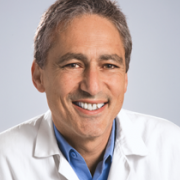October 31, 2018
10:00pm – 11:00pm
UCLA Center for Health Sciences, CHS 43-105
EHS & The Molecular Toxicology IDP Present:
Environmental Influences of Adverse Outcome Pathways in Parkinson’s Disease

Jeff Bronstein, M.D., Ph.D.
David Geffen School of Medicine at UCLA, Molecular Toxicology IDP
About the lecture: Parkinson’s disease (PD) is a slowly progressive disorder that develops over several years. Both genetic and environmental influences have been found to alter the risk of developing PD but the molecular mechanisms by which they act are not well understood although a number of pathways have been proposed. Since PD takes years to manifest, it is difficult to develop animal models that recapitulate all aspect of the disease. We utilize zebrafish to determine how environmental and genetic risk factors alter molecular pathways that lead to the development of PD (i.e. adverse outcome pathways).
About the speaker: Jeff Bronstein received his bachelor’s degree from the University of California, Berkeley and M.D. and Ph.D. from UCLA as a recipient of the Medical Scientist Training Program Award. He completed a residency in Neurology and fellowship training in Movement Disorders at UCLA. Dr. Bronstein also completed a postdoctoral fellowship in molecular biology before being appointed an Assistant Professor of Neurology. He was later appointed Director of the Movement Disorders Program at UCLA. His interests and expertise include the management of Parkinson’s disease (PD) and other movement disorders, surgical treatment of PD, and developing new therapies for patients. Dr. Bronstein was recently awarded one of 6 National Parkinson’s Disease Centers at the Veterans Administration Medical Center with the goal of furthering research, education and clinical care in the Southwest US. His laboratory studies the cause of PD using cell models and a newly developed zebrafish model. His work supported by the NIH and private foundations. Dr. Bronstein also directs clinical trials in order to develop new therapies for PD that include transplantation and deep brain stimulation. He has received several awards and is widely published in the field.
Supported by the UCLA NIEHS Training Grant in Molecular Toxicology T32ES015457 & The National Center for Advancing Translational Sciences, UCLA CTSI Grant UL1TR001881.
For more information, contact Dr. Oliver Hankinson at ohank@mednet.ucla.edu.

